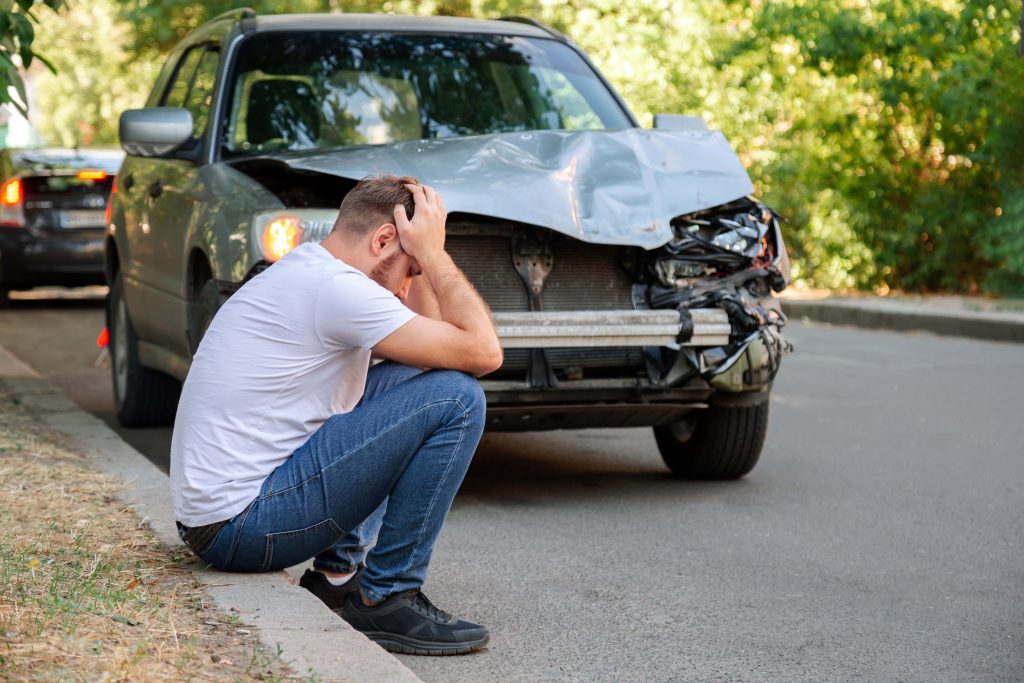Road trauma or traffic accidents can have profound and lasting impacts on a person’s life, both in the present and the future. These impacts can be physical, emotional, social, and financial, affecting not only the individual but also their family and loved ones. The consequences of life-changing accidents can be far-reaching, potentially significantly altering a person’s ability to earn money and maintain their quality of life. Programs such as TLISS00155 Road Safety Skill Set Program delivered to our Year 10, 11, and 12 secondary school students, combined with quality Defensive Driver courses, are a great way to reduce these impacts; however, we often forget that our Road Safety education beings as a child.
Physical Impacts
Severe traffic accidents can result in debilitating injuries, such as traumatic brain injuries, spinal cord injuries, fractures, or amputations. These injuries can cause long-lasting or permanent physical disabilities, impacting a person’s mobility, strength, and overall physical function. In some cases, individuals may require ongoing medical treatment, rehabilitation, or assistive devices to manage their daily activities.
Emotional and Psychological Impacts
The emotional and psychological impacts of road trauma should not be underestimated. Accident victims may experience post-traumatic stress disorder (PTSD), anxiety, depression, or other mental health issues resulting from the traumatic event. These mental health challenges can impact relationships, daily functioning, and overall well-being.
Social Impacts
Road trauma can also have social consequences, affecting an individual’s relationships, leisure activities, and community involvement. Physical and emotional limitations may result in isolation and reduced social interaction, leading to loneliness or difficulties maintaining friendships and family connections.
Financial Impacts
Life-changing accidents can significantly impact a person’s ability to earn money in the future. Severe injuries may prevent an individual from returning to their previous occupation or working in any capacity, leading to a loss of income and financial stability. Additionally, the costs associated with medical treatment, rehabilitation, and ongoing care can be substantial, placing a significant financial burden on the individual and their family.
Impacts on Family and Loved Ones
The effects of road trauma extend beyond the individual, impacting their family and loved ones as well. Family members may need to assume caregiving roles or make significant adjustments to their lives to support the injured person. These changes can cause stress and strain on relationships, further exacerbating the emotional and social consequences of the accident.
How can you protect yourself from these effects?
Have you heard the saying ‘Good behaviours lead to Good results’? While there is no 100% surefire way of avoiding Road Traffic accidents, studies have shown that good driving behaviours lead to good results. Start with the right ingredients & methods, and you will surely get a great result.
Stage 1: Learning as a child (1 to 15 years)
An individual’s road safety education starts as a child. Watching parents drive, learning their driving behaviours, and their attitudes towards other drivers, especially when those drivers make a mistake on the road, those memories and learned behaviours stay with that child becoming part of the fabric that shapes their driving future. This is not to say that any bad driving behaviours observed from a parent will haunt or shape the next generation of drivers on Australian Roads for the rest of that child’s life; however, without proper guidance and education moving forward, negative observations and experiences certainly have a profounding effect on the future direction that life may take.
Stage 2: Learner Driver Stage (16 to 18 years)
The next stage of learning occurs as a secondary school student. As the child becomes a learner driver, the information taught and shared by secondary schools through programs such as the TLISS00155 Road Safety Skill Set and by Qualified Driving Instructors helps prepare young drivers for the next chapter in their own lives, being the P Plate (solo driving) phase. The importance of this stage in an individual’s Road Safety education has generally always been undervalued by parents and State & Local Governments. Speaking from a 28+ year history in Road Education, we have seen communities, groups, and individuals prioritise Guitar lessons and alike over professional driving lessons simply because people believe that driving a car is something that everyone can teach, and failing to understand that effect that getting it wrong on the road has an accumulative effect on a person’s life. While the mechanics of driving can be taught by non-qualified people, such as a parent, other aspects of Road Safety are generally forgotten completely, not understood by the supervising driver (and therefore not passed on to the next generation of drivers), not seen as important by the supervising driver, or are taught with one’s own self-serving bias, belief, and attitude dictating the road safety outcomes, to mention a few.
Using the services of a qualified driving instructor will ensure that information, such as attitude awareness, psychology of driving, shared road user awareness, safe driving principles, forward planning and observation techniques, and pro-active, not re-active driving techniques, are taught and embedded in a learner driver. It is important to note that quality road safety outcomes such as these can only be achieved and taught if you use a qualified driving instructor throughout the learner driver’s L-Plate period. Using a driving instructor for a one-off lesson or a couple of lessons before a regulator drive test will not benefit Road Safety. The best way to use the services of a driving instructor is by taking lessons over a period of time and then practising what you learn in between lessons at home with a parent.
For most road users, this is where Road Safety Education stops. The education an individual receives as a learner driver is rolled over year after year without ever needing access to new information, new or improved driving techniques, updated road rules, or even updated information on how to integrate new vehicle technology into everyday driving for best outcomes. Driving habits (Good and Bad) are made permanent, and attitudes towards other drivers combined with a self-serving bias are imprinted for life and passed on to the next generation of drivers continuing the cycle throughout time.
Stage 3: Professional or Personal Development (18+ years)
When considering how many drivers we have on our Australian roads, only a small percentage of those will ever go on to complete a Defensive Driving Course. While we will not go into the details of a defensive driving course here, picking the right course, that is one that focuses on pro-active rather than re-active driving, will certainly re-align an individual’s driving behaviours and beliefs on ‘road-sharing’, creating greater safety outcomes for all road users.
This cannot be said for an Advanced Driving Course disguised as Defensive Driving Course (see our article on the difference between Advanced Driving Courses v Defensive Driving Courses) that focuses on driving techniques, inflating a driver’s confidence and belief in their own abilities, and creating false confidence. For more information on the dangers of Defensive Driving Courses, check out our other blogs.
There are generally two types of groups that participate in a Defensive Driver Course. The first groups are individuals who have had a personal encounter with Road trauma or been in a Road accident. The second group are individuals participating in a Defensive Driver course as part of an employment obligation. Under current WorkSafe law, if an employer provides an employee with equipment such as a vehicle, they have an obligation to ensure that they provide the employee with sufficient and ongoing training on that equipment.
Want to help spread the Road Safety Message?
Road trauma or traffic accidents can have wide-ranging and lasting impacts on an individual’s life, both in the present and the future. The physical, emotional, social, and financial consequences of life-changing accidents can significantly affect a person’s ability to earn money and maintain their quality of life. Youth Road Safety programs such as the TLISS00155 Road Safety Skill Set that are taught in Secondary Schools across the country are crucial to promote road safety awareness and implementing effective prevention strategies to reduce the prevalence of these life-altering events.
Intelligent Training Solutions are always looking for trainers to help spread the Road Safety message within Australian Secondary Schools, assist Novice drivers by becoming a qualified Driving Instructor, or simply by speaking with your child’s secondary school and encouraging them to include programs such as the TLISS00155 Road Safety Skill Set into their curriculum. Contact us today to find out how you can best assist with spreading the Road Safety message.

